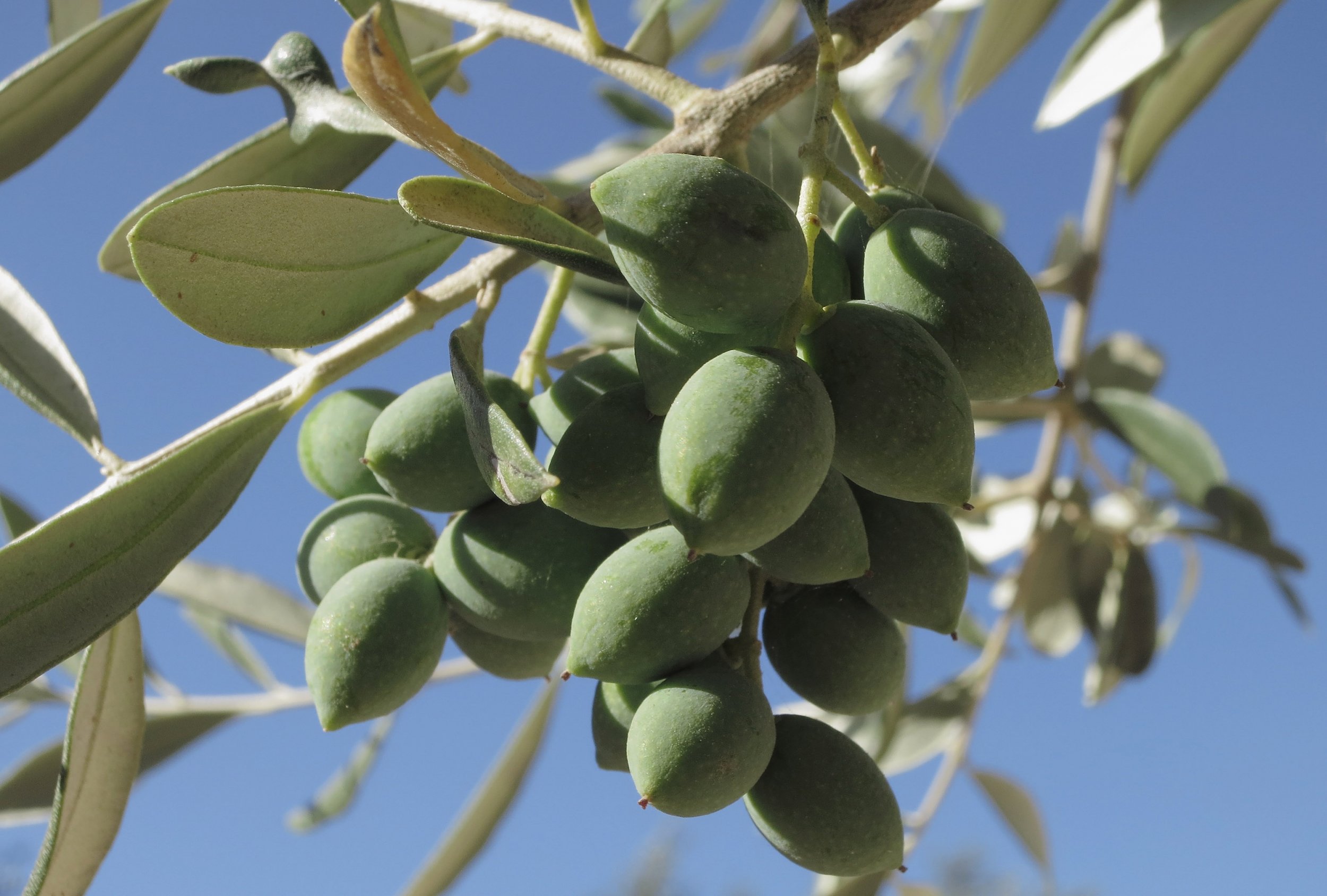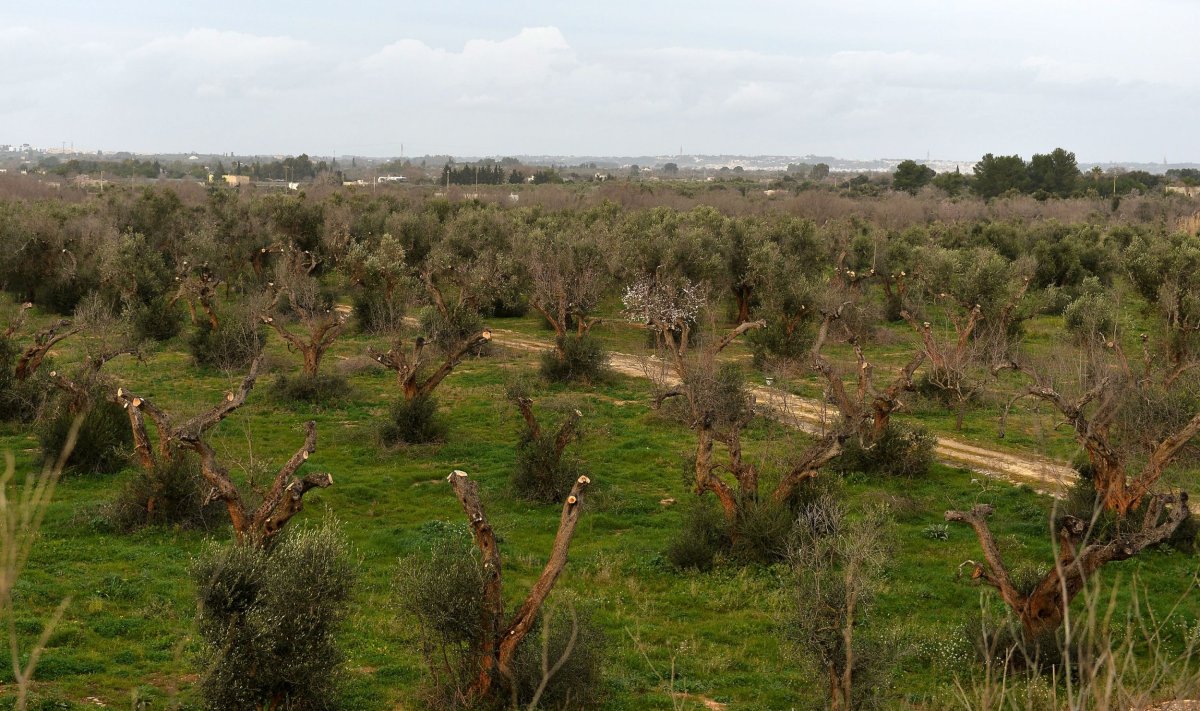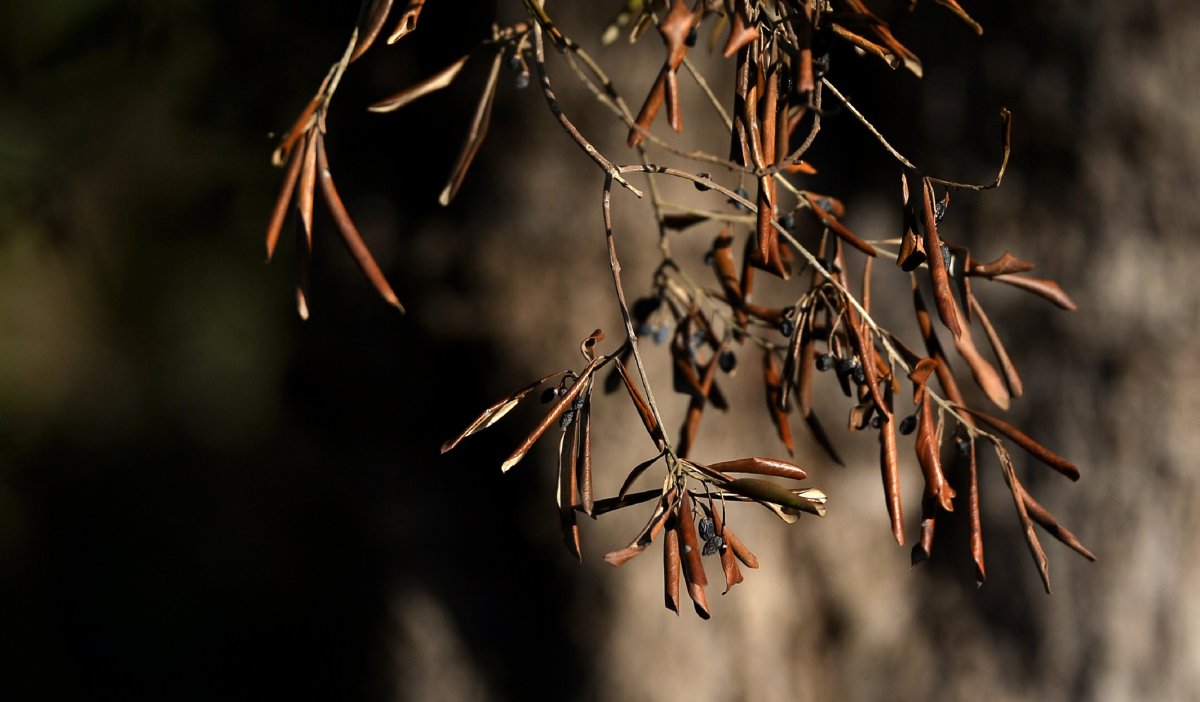
Spanish officials have confirmed the arrival of Xylella fastidiosa, a pathogen deadly to olive trees, on the country's mainland. About half the world's olive oil comes from Spain's estimated 340 million olive trees, and experts fear the bacteria could devastate the harvest. Up to a million olive trees in Italy were killed by the infection last year, leading Italian officials to chainsaw trees to the ground in an effort to stop the sickness.
The pathogen was found among almond trees in the eastern region of Valencia, according to Elena Cebrian, head of the agriculture department there. Of a sample of 17 almond trees, 12 were infected with the bacteria. The trees did not appear sick, but their almond production had decreased. Olive trees in the immediate area have not tested positive for the bacteria so far, but all trees and plants within a 300-foot radius of the infected almond trees are being killed, per containment measures enforced by the European Union. Officials are also treating the area against insects that may carry the pathogen. The country also has banned plant imports from Spain's Balearic Islands as another precaution. Last year, Xylella subtypes were found on cherry trees in Mallorca, which is on the largest of these islands. Currently there is no cure for the disease caused by the bacteria.

Xylella fastidiosa, which the Spanish newspaper El Mundo has called the "Ebola of olive trees," is feared by olive growers. The European Union considers it, "one of the most dangerous plant bacteria worldwide," with a huge potential to decimate crops and hurt agriculture. The pathogen was first reported in Europe in 2013, when it was found in the olive groves of Puglia, in Italy. France reported an outbreak in Corsica in 2015 and later on the mainland among myrtle-leaf milkwort.
A scathing report released in June by the European Commission blames Italian authorities for allowing the Italy outbreak to proceed unchecked. Researchers believe X. fastidiosa reached Italy from its native ecology in the Americas. A recent thorough overview in Nature documents the challenges that followed. After the bacteria were identified as the cause of the "olive quick decline syndrome" striking Puglia trees, local environmentalists were furious about ancient olive trees being cut down to stop its spread, leading one prosecutor to launch a criminal investigation asserting that the researchers had themselves caused the infection.

The European Commission has expressed serious concerns about the havoc X. fastidiosa could wreak on the entire olive industry. Those fears are now accompanied by the threat of another subtype, X. fastidiosa fastidiosa, native to southern Central America. This species causes Pierce's disease, known to kill grapevines in California and was recently spotted in Mallorca.
X. fastidiosa lives in the xylem tissue, which move water through a plant. Spittlebugs, cicadas and sharpshooters that feed on the xylem are known transmitters of the pathogen. One such insect, a spittlebug known as the meadow froghopper, or Philaenus spumarius, feeds frequently on olive trees and is the bug responsible for the Apulia outbreak. The pathogen can infect an estimated 300 plant types worldwide.
In trees infected by X. fastidiosa, the leaves dry out and soon appear scorched. The bacteria move throughout the xylem, preventing water and nutrients from reaching the leaves and other structures. The infection carries a high risk of death. In the U.S., X. fastidiosa has attacked blueberry, pecan, almond and other trees in the south and in California.
Uncommon Knowledge
Newsweek is committed to challenging conventional wisdom and finding connections in the search for common ground.
Newsweek is committed to challenging conventional wisdom and finding connections in the search for common ground.
About the writer
Jessica Wapner is the science editor for Newsweek. She works with a talented team of journalists who tackle the full spectrum ... Read more
To read how Newsweek uses AI as a newsroom tool, Click here.








